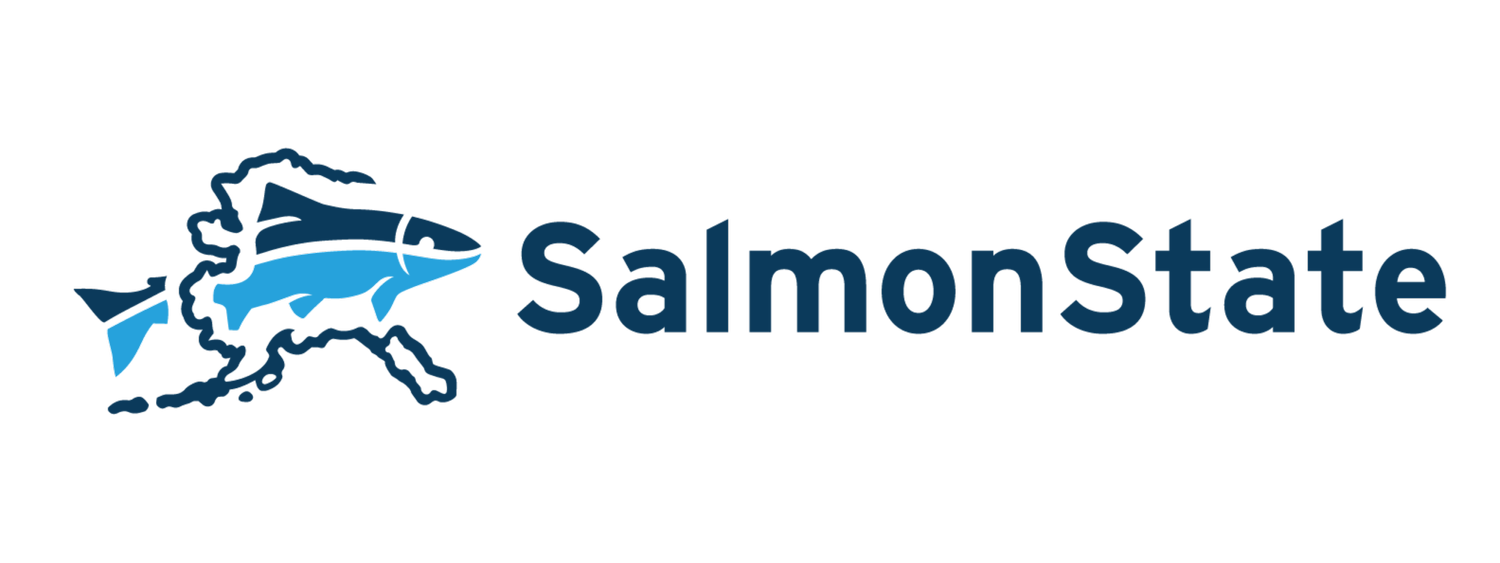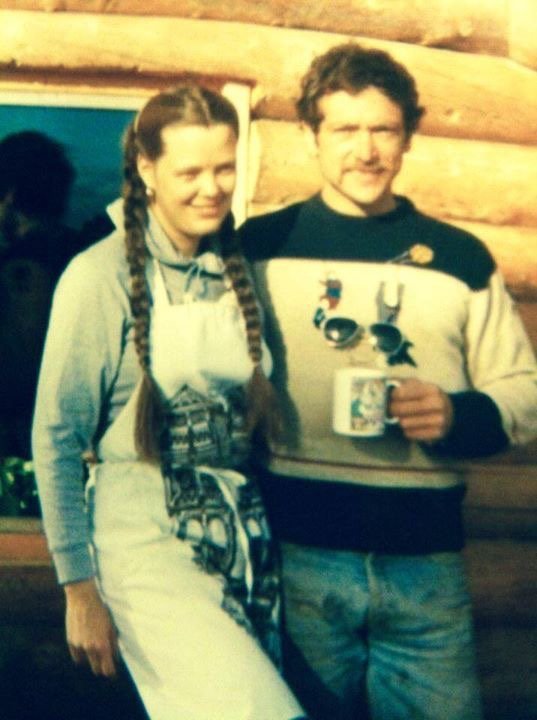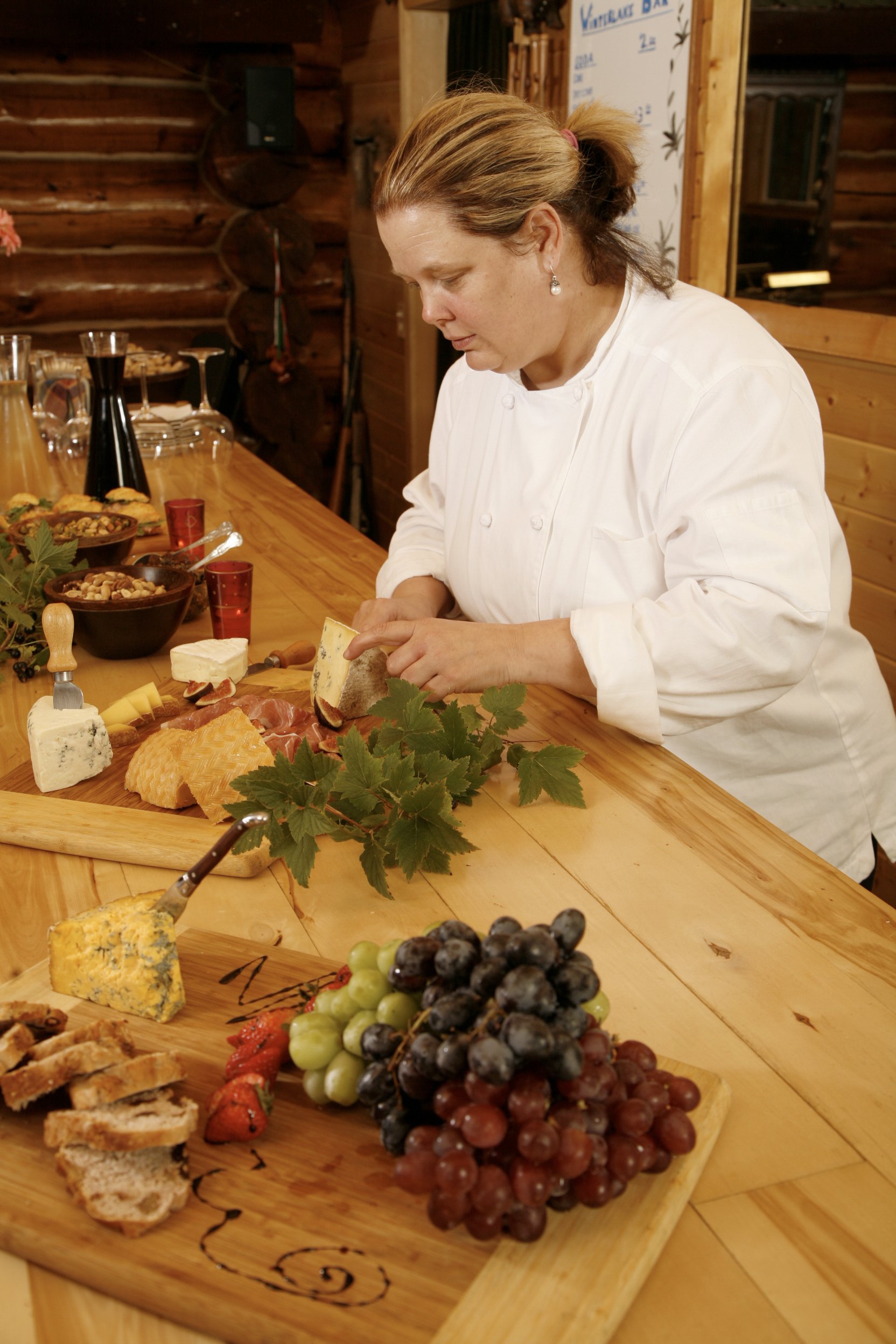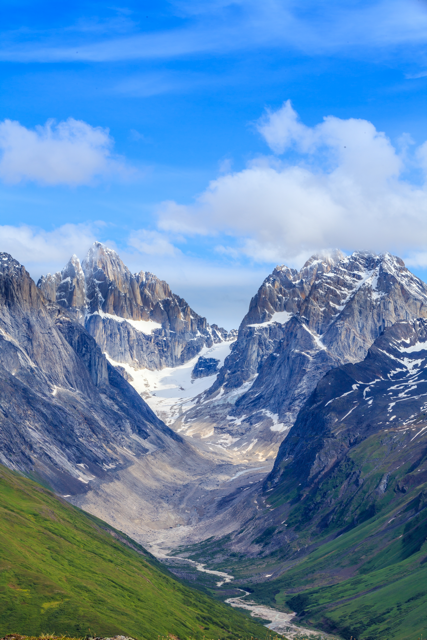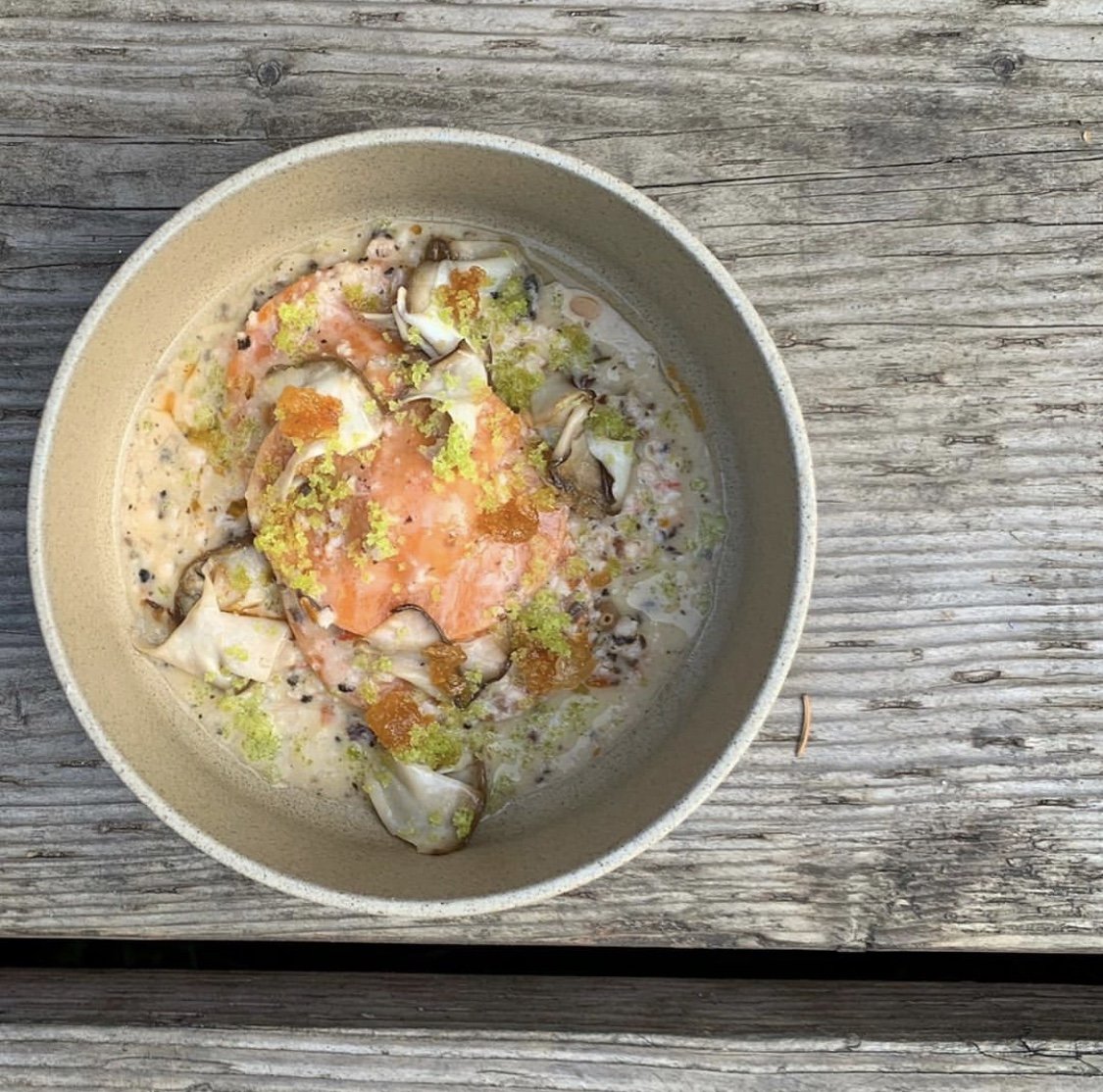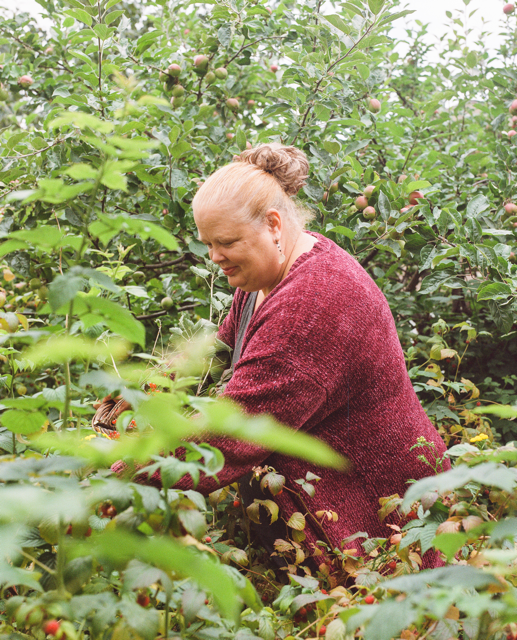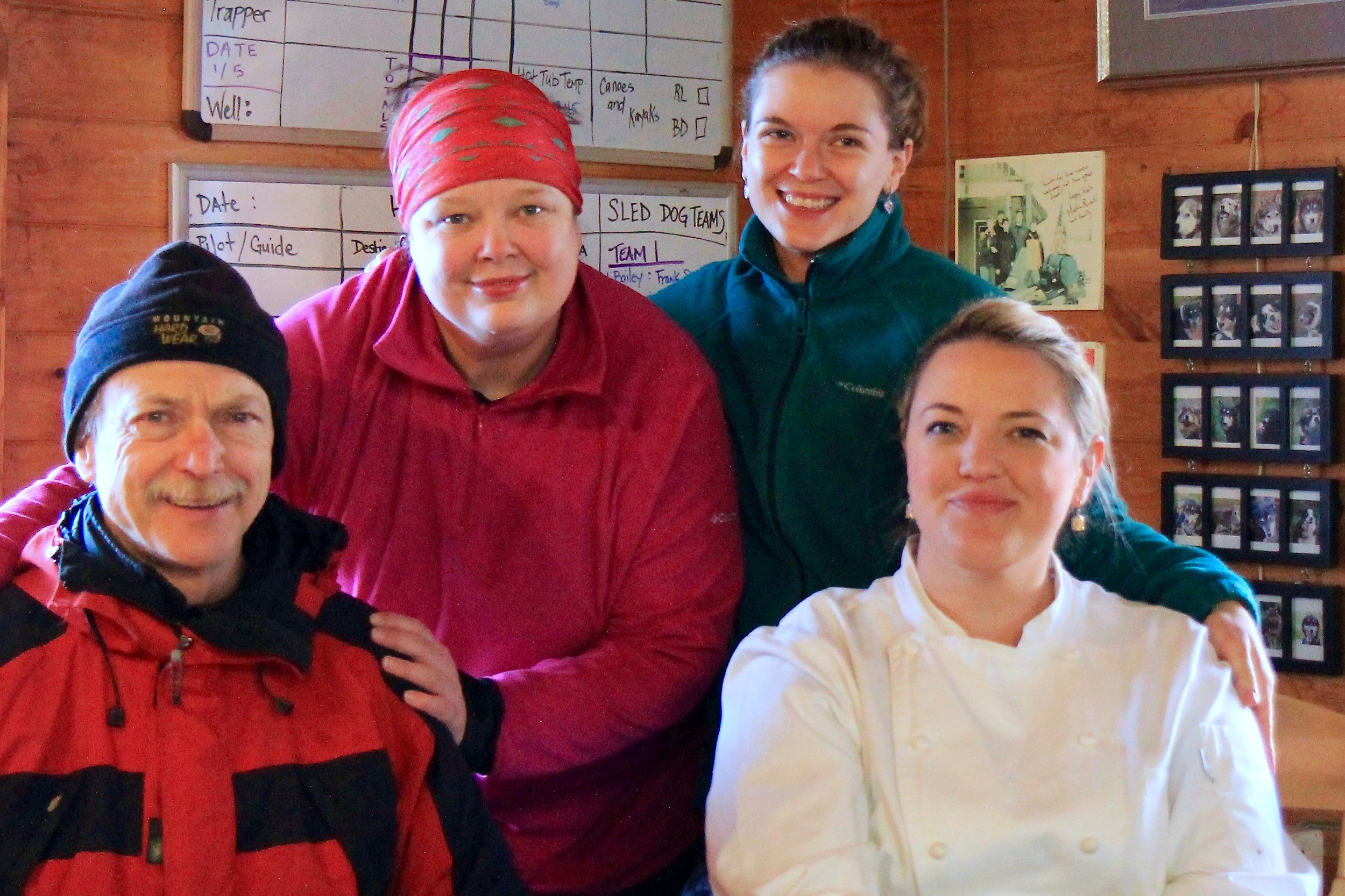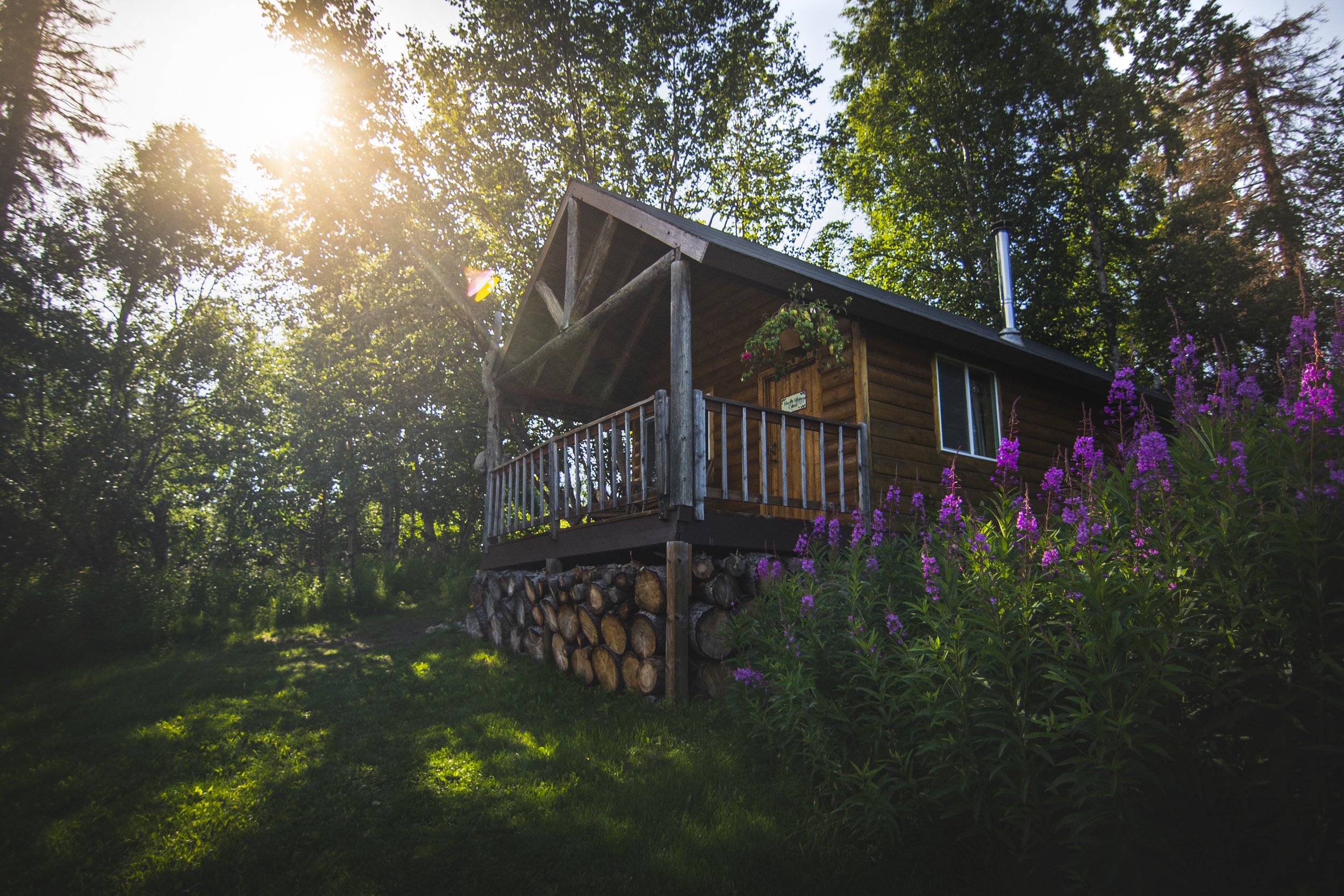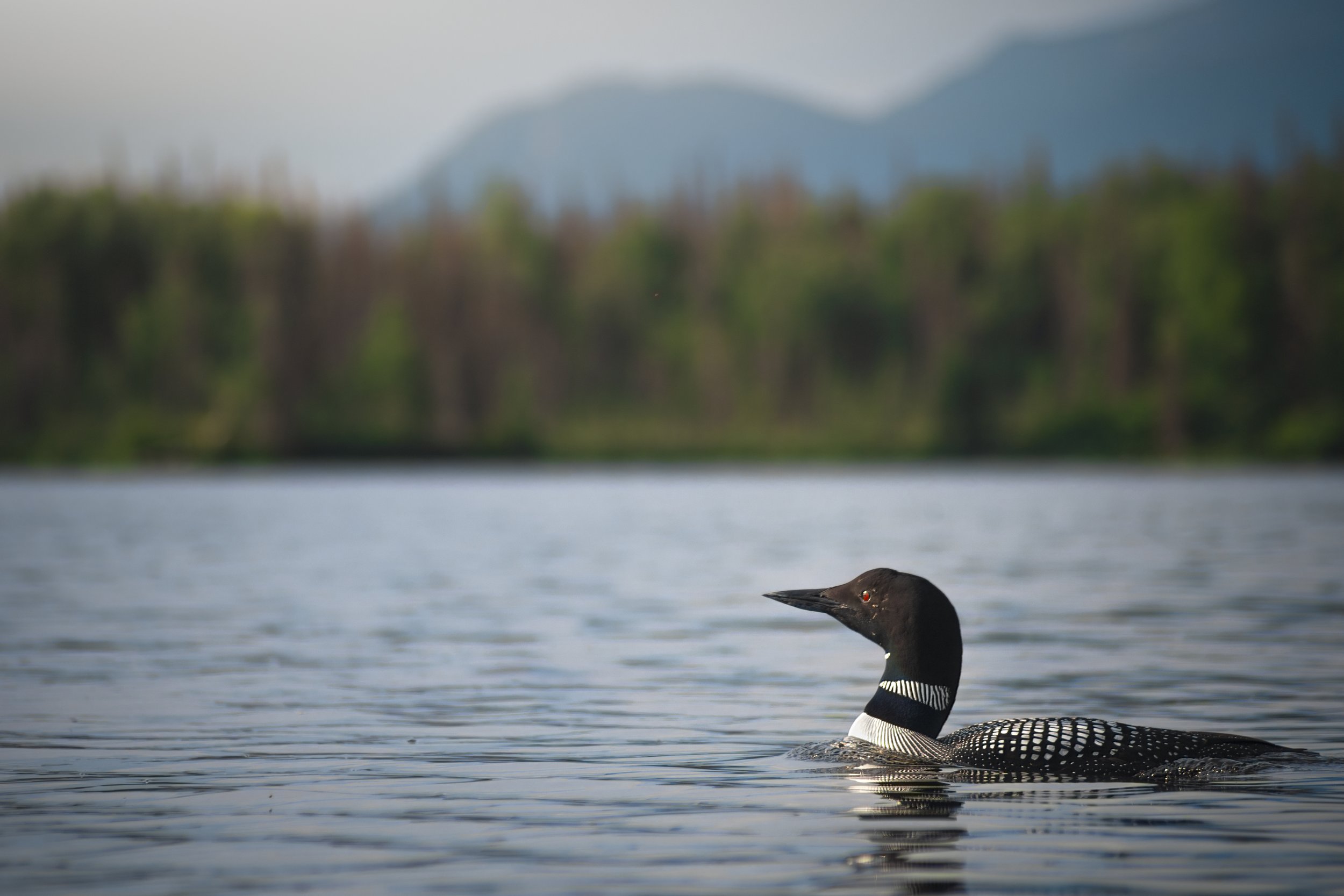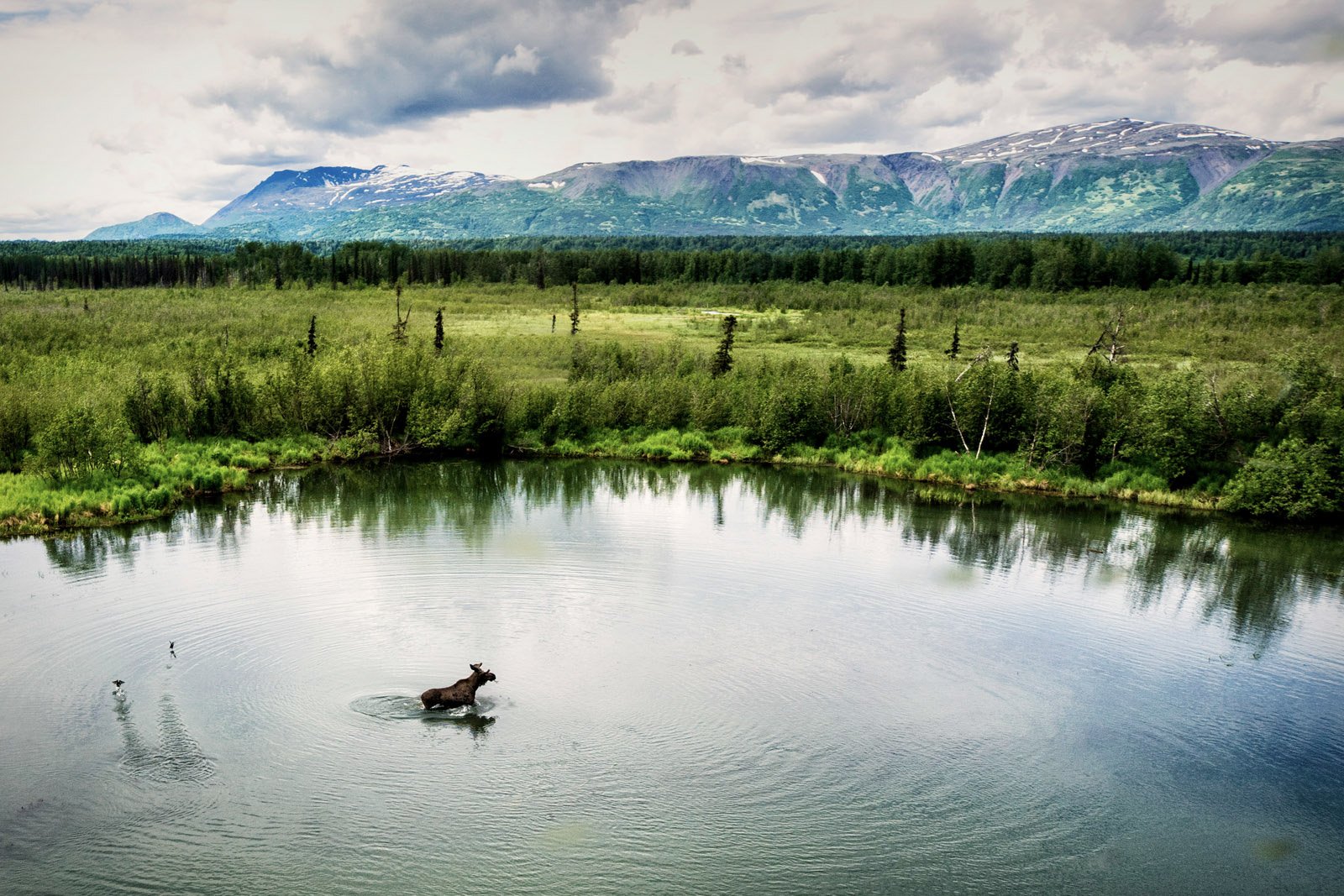Kirsten Dixon
Photos by Within the Wild
“I graduated from college with a nursing degree, and I came to Alaska to pay off my scholarship. I wanted to go to New York, to a busy emergency room situation. But I went to Anchorage, and worked at the Alaska Native Medical Center in the ICU. There, I met my husband Carl, who was an audiologist.
He had been up here four or five years and was on a pathway of wanting to move out of Anchorage and live more remotely and simply, connected to the natural world. I didn’t know what I was getting into!
We didn’t know what we were doing at all, but I really loved to cook. I still do. I wanted to somehow make food for people. So we bought a little piece of property along the Yentna River. It had a log cabin. We built it up, built a lodge, and named it Riversong. We had two daughters, and we homeschooled them. We didn’t have running water for seven years. The girls really gained a lot of value living the way they were raised — they’re very capable, all grown up now. This is just one small family story, and I know many many people are living the way that we have been living all over Alaska in all sorts of terrain, with all sorts of struggles and challenges in geography. It’s a part, in a way, of who we are as people here.”
—Kirsten Dixon, Alaska lodge owner, chef, author, and West Susitna resident
Photos by Jeff Schultz
“Back in the 1970s, going to culinary school wasn’t really a glamorous thing to do. It was kind of a traditionally male-dominated thing. But I was always intrigued with culture and cuisine around the world. That was a little thread that always ran through my brain. And when Carl and I decided to start this little lodge on the Yentna River I was just so excited.
When we started Riversong it had one guest cabin. Carl was the guide, I was the cook. I had no idea what I was doing. I cooked American country food like ham and mashed potatoes. I put our two girls on the back porch in high chairs, gave them a big bowl of mashed potatoes and let them go at it. But a lot of the guests that we started to get were Europeans coming over for salmon fishing, and quite a few people were chefs. What they brought back, they would sell in their restaurants. So I started to meet people coming into my tiny kitchen and showing me things, teaching me things.
One couple would come every year for a month in June and in August, and they invited me to, stay in Paris at their house and arranged for me to go to the Cordon Bleu Culinary school. So I began to get training and to elevate my cuisine a little, and honestly I’m still doing that. Tutka Bay and Winterlake have four people in the kitchen cooking, and all of them are extremely talented and creative. I’m surrounded by creative people. It’s always been super rewarding to be in hospitality, bringing people together at the table, seeing them happy, seeing them connecting with family, laughing and talking, rather than what I was experiencing as a nurse.
Everybody needs to believe in something, and what we believe in is working very hard and showing grace to our guests.”
—Kirsten Dixon, Alaska lodge owner, chef, author, and West Susitna resident
Photo by Jeff Schultz
“We owned Riversong for a long time. It happened to be at a location that was really good for fishing. And we moved because people began to move into the area, and we felt people pressure. We feel a responsibility, thinking of, say, that older man from back East who has saved all his life to be able to come to Alaska, and has dreamed of backcountry Alaska life. We want to be able to show him the way we’ve lived, and amaze him with that dream he has had. That dream that so many of us have had one way or another is something we try to uphold.
So in west Cook Inlet, there was a man who owned Hayes River Lodge, one of the oldest lodges in Alaska. We purchased it, and we ended the hunting business and instead took guests for recreational activities like glacier trekking and wildlife viewing. River rafting, fly fishing. Now we have two lodge properties — in Tutka Bay and our home in the West Susitna, Winterlake Lodge.”
As we evolved, we really began to think about the idea that this place could easily easily be damaged, could be changed.”
—Kirsten Dixon, Alaska lodge owner, chef, author, and West Susitna resident
Photo by Jeff Schultz
“The first startling, shocking moment learning about the West Su mining road AIDEA proposes was when some sort of vehicle came up the Iditarod Trail in the winter, when my husband and I were at home.
There was a rumbling sound, and the lights of a vehicle coming close by. It was so surprising and foreign. Like a stormcloud came over us and went away.
Later, the helicopters increased, and traffic increased. They have built an ice road to the airstrip they call Whiskey Bravo and cut down a wide swath of gorgeous spruce trees. And we learned about the Donlin Gold Mine, and Nova Minerals. And the storm cloud got a little darker. And there’s a sadness that extraction companies are easily being given leases that could bring future devastation at these really incredible, beautiful locations.
I almost always worry about it. And I almost always have some hope that we can change this situation where we’re not potentially damaging one of Alaska’s most significant salmon runs.”
—Kirsten Dixon, Alaska lodge owner, chef, author, and West Susitna resident
Photos by Jeff Schultz
“My husband Carl and I made a choice and made life changes to live where we live, as did most people in West Susitna. We purposely made life changes. Life choices. We invested all of our resources into living a particular kind of path and lifestyle. Now, with AIDEA applying for a permit for the West Susitna Industrial Access Road, and how easily the Mat-Su Borough Assembly supported it — it’s scary how distant people far away, who don’t know us, or live near us, can affect our entire life trajectory, and change everything. And for what net gain? To allow unknown people to come into our geography, that we deeply love and respect, to go make jewelry? I don’t see the value of it, and I don’t respect it. I think Alaskans could and should begin to think about more sustainable resource development, rather than extractive industries.
We need to protect the very thing that gives us the most value, which is our land, our clean water, our clean soil, our clean air. It’s difficult to find places like West Susitna Valley anymore.”
—Kirsten Dixon, Alaska lodge owner, chef, author, and West Susitna resident
Photo 1-2 credit: Jeff Schultz. Photo 3-4 credit: Ash Adams
“In spring, we are in breakup. We are closed down and waiting for the lake in front of our lodge to melt out, since it’s too soft to land on skis.
In springtime we begin to work in our garden. We have a high tunnel, and we grow a lot of our own food at the lodge. I’m a chef, and one of my daughters is a chef as well.
We also get our dogs ready for the transition. We have 20 sled dogs at the lodge, and had 6 puppies this spring as well. We helicopter our summer crew into Winterlake to do a lot of training, since we do a lot of glacier travel, and we do glacier trekking training with the guides, and mountain traverse training. We keep a helicopter at our lodge, and in the summer, we go into the really vast and incredibly beautiful Alaska Range that surrounds us. Our promise to our guests is that we bring them into wild and natural spaces. The road, if it were to come through, would really disturb our sense of the natural world. As it’s designed now, the footprint of the road would be quite close to Winterlake Lodge.
—Kirsten Dixon, Alaska lodge owner, chef, author, and West Susitna resident
Photo 1-2 credit: Ash Adams. Photo 3-4 credit: Within the Wild
“Anchorage hangs its hat on the wildness that’s nearby and accessible to visitors. It’s accessible by airplane on a lot of different scales. It’s not just for rich people going out there. There are tours that are more modest. You can go up to the valley and boat out.
AIDEA’s proposed access road isn’t for a place with lookouts, and bathrooms, and paved facilities. It doesn’t serve Alaskans. It serves others — the companies and their shareholders.
Having a Canadian company come in, and being able to create a swath across our entire valley and extract gold, create dust, debris, rubble and contamination, is not going to measurably improve our lives.
I deeply want your children’s children, and your grandchildren, to be able to experience what we do on an everyday level. Wild, clean air. Birds that come back in the spring. The animals we see. The grandeur and beauty of it all.”
—Kirsten Dixon, Alaska lodge owner, chef, author, and West Susitna resident
Photo by Ty Potgieter
We love making guests who come and stay with us have the best time ever. It’s more a lifestyle than a business. That human connection is important to us. And I do feel that in our small, weird way we can hopefully make a difference. We only have six guest cabins, but people will fly out to a mountain and say “This is the most beautiful thing I’ve ever seen. This is the best day of my life. This makes me feel differently about the natural world. It gives me hope to see wild places like this.’
We hear that a lot. Not just one time in every five years. To lose that ability, for us, would be a huge loss. What we do now will affect future generations.”
—Kirsten Dixon, Alaska lodge owner, chef, author, and West Susitna resident
Photos by Within the Wild
“I think Alaskans could and should begin to think about more sustainable resource development rather than extractive industries, so that we do protect the very thing that gives us the most value — our land, our clean water, clean soil, clean air. It will become even more valuable real estate left wild and natural, as the world loses those attributes, it’s difficult to find places like West Susitna.”
—Kirsten Dixon, Alaska lodge owner, chef, author, and West Susitna resident
